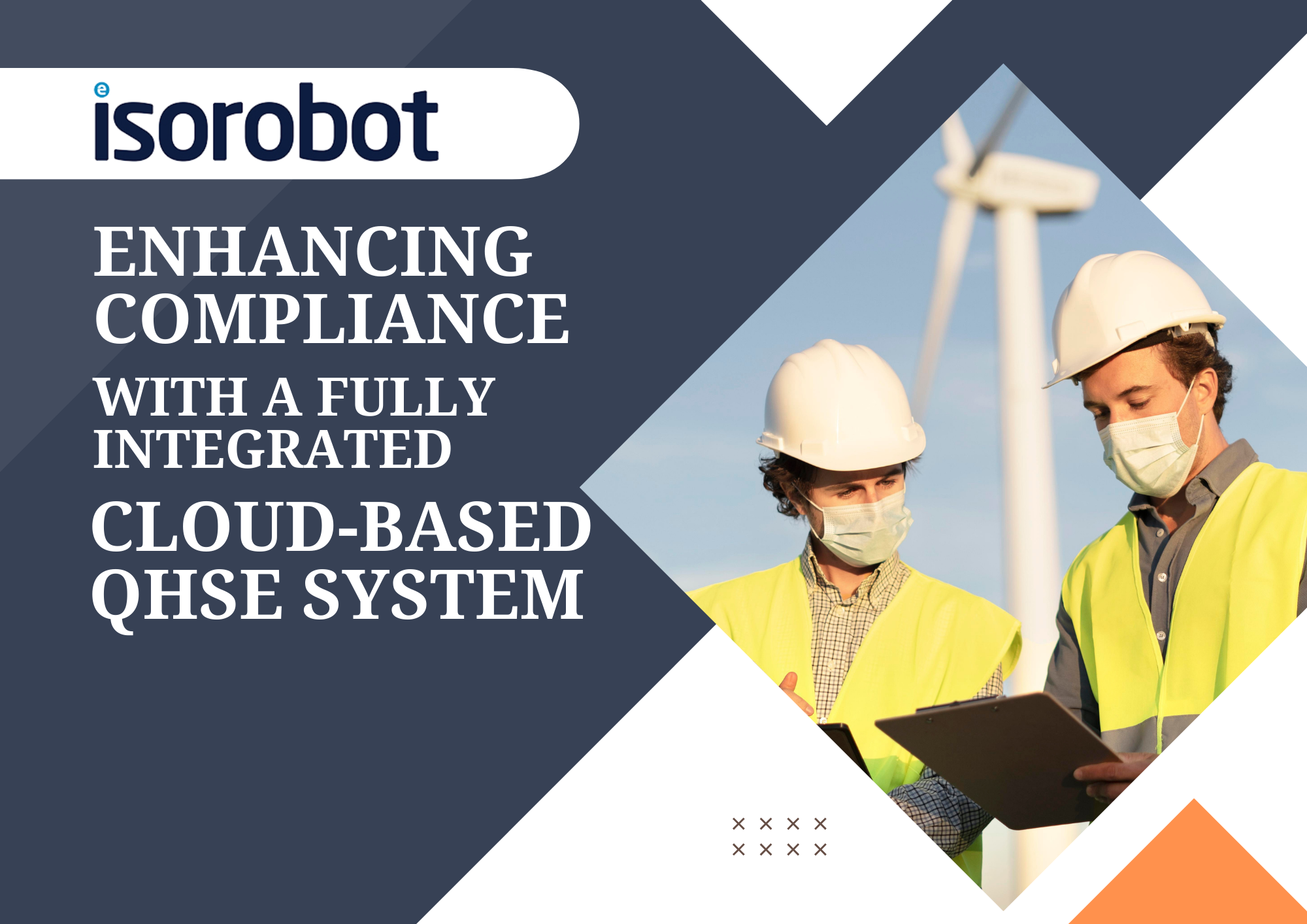Enhancing Compliance with a Fully Integrated Cloud-Based QHSE System

Companies constantly seek to improve their businesses and remain ahead of their rivals in the modern, rapid, always-evolving economic scene. Along with attaining a profitable business, sustainability involves safeguarding the well-being and happiness of the staff while decreasing the impact they have on the environment. Stored in the cloud, Quality, Health, Safety, and Environmental (QHSE) management platforms that have full integration used by numerous entities to meet these objectives. Several advantages provided by these technologies can aid companies in improving productivity, streamlining procedures, and finally achieving overall success.
Coordinating and managing all facets of environmental, health, safety, and quality management from a specific location is one of the main advantages of a fully integrated, cloud based QHSE management system. Having few systems and procedures is no longer necessary, which can frequently result in confusion, effort duplication, and inefficient resource utilization. Effective risk management and improved decision-making are made possible by having all pertinent data and information in one single, integrated system that is simple to manage and analyse in real time.
A cloud based QHSE management solution also provides flexibility. A company's ability to collaborate and communicate regularly and on time across all business sectors is especially advantageous for those who employ remote workers or have few locations. Employees may readily access and update information, complete tasks, and report accidents or dangers in real time.
A fully integrated QHSE management system can also help firms achieve and maintain compliance with industry standards and recommendations. Systems developed to integrate all pertinent regulatory requirements and best practices, ensuring that businesses are fulfilling their responsibilities and lowering their risk of fines or legal problems. Businesses may quickly identify and address non-compliant areas by employing automated compliance inspections and real-time monitoring.
Companies in an array of sectors may profit significantly from an entirely integrated, cloud-based Quality, Health, Safety, and Environment (QHSE) management system. Following is just its major advantages:
Centralized Data Management:
A QHSE management system that is cloud-based integrates every record concerning safety, health, quality, and the natural world into just one, readily available interface. That decreases the risk of information bunkers and redundancy by enabling better handling of information, preservation, and querying.
Real-Time Access to Information:
Customers can access immediate-time QHSE statistics employing a cloud-based system from any location with an internet connection. It provides the ability to team up, decide swiftly, and react to issues or emergencies.
Improved Collaboration and Communication:
Divisions, teammates, as well as outside parties, may interact smoothly through cloud based QHSE technological advances. That provides a way to enable participants to transmit homework and alterations, along with reports, thereby promoting collaboration and interaction.
Enhanced Compliance Management:
Built-in compliance management tools in cloud based QHSE solutions enable businesses to monitor and guarantee adherence to internal policies, industry standards, and regulatory requirements. Reminders and alerts sent out automatically assist in keeping track of compliance requirements.
Streamlined processes and workflows:
Integrated QHSE systems automate tedious operations like data input, reporting, and notifications, which streamline workflows and processes. Employees can now focus on higher-value tasks with more efficiency and fewer errors.
Better Risk Management:
Cloud-based QHSE solutions help businesses recognize, evaluate, and reduce risks more successfully. These systems support decision-making for incident prevention and increased safety by centralizing risk data and offering analytical tools.
Enhanced Reporting and Analytics:
Companies can create bespoke reports, dashboards, and metrics to track performance, trends, and areas for improvement with cloud based QHSE systems' extensive reporting and analytics capabilities.
Scalability and Flexibility:
Whether a company is growing into new markets or scaling up operations, cloud-based solutions can adapt to its changing needs because of their adaptability. Moreover, they offer adaptability to changing business norms and legal obligations.
Cost Savings:
Pay-as-you-go or subscription-based cloud-based QHSE systems are a fantastic way to cut expenses associated with IT maintenance and do away with the requirement for upfront infrastructure investments. Compared to conventional on-premises systems, this may result in significant cost reductions.
Continuous Updates and Maintenance:
Companies that employ cloud based QHSE systems continually have access to the system's latest functions and safety patches, including compliance upgrades, despite the requirement to perform periodic installations as well as servicing since the company that provides the service updates the software frequently.
Improved Disaster Recovery and Business Continuity:
Integrated recovery from disasters and information restoration capabilities provided by cloud based QHSE platforms allow companies to recover quickly in situations of a breach of data, a natural occurrence, or other unforeseen circumstances.
Environmental Sustainability:
By simply removing requirements for within-premises machinery, consumption of electricity, and substantial storage capability, corporations can reduce their environmental impacts by employing cloud-based systems.
A major advantage of a completely cloud based, integrated QHSE management system is improved data management and analysis. Businesses equipped to track and analyse trends, pinpoint areas for improvement, and make data-driven choices when all quality, health, safety, and environmental data is centrally kept. Process efficiency gains, cost savings, and enhanced performance.
Enhancing staff engagement and participation in health and safety efforts is another benefit of a fully integrated QHSE management system are enabled to promote a safe and healthy work environment through features including incident reporting, hazard detection, and training management.
In conclusion, companies of all sizes and sectors may gain a great deal from a fully integrated, cloud based QHSE management system. These processes provide an integrated approach to managing every aspect of quality, health, safety, and environmental oversight, including simplifying processes by reducing expenses and improving conformity and staff engagement. Several benefits come from using a completely integrated, cloud-based QHSE management system: centrally managed management of data, instantaneous data availability, raised compliance oversight, simplified procedures, better risk administration, advanced reporting and data analysis, flexibility, savings on expenses, regular repairs and updates, enhanced business continuity and disaster recovery, and a healthy environment. Employers can support positive outcomes and profitable expansion while additionally securing staff members as well as their environment simply by investing funding in a QHSE system of governance.